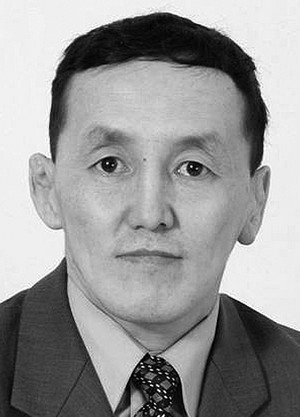Intellectual development of schoolaged athletes
Фотографии:
ˑ:
Intellectual development of schoolaged athletes
I.I. Portnyagin, professor, Dr.Hab. V.G. Torgovkin, Ph.D. Institute of physical culture and sport of North-Eastern federal university, Yakutsk
Key words: personality, formation, individual work, intelligence.
The purpose of the research was to reveal theoretical-methodological basics of development of intellectual powers and capacities of schoolaged athletes.
The study resulted in the conclusions:
• personal intellectual development of schoolchild within sports activity is a pedagogically organized gradual process within which schoolchildren's motivational sphere arises and expands;
• the dominating phenomenon of pedagogical process is the source of contradictory correlations of components of intelligence development resulting in integrity, based on the cooperation in the systems of «pupil-teacher-trainer-child's sports collective», stipulating to the contents of sports work, pupils' and teachers' subject-subjective views;
• the level of intellectual development of schoolchildren determines self-regulation of their behavior laying the basis of psychological mechanisms of promoted unity of consciousness and personal behavior; intellectual development is caused by a wide use on sports classes of means and methods developing inductive and deductive thinking, reasoning and abstraction, analytical and compositive abilities etc.;
• high level of intellectual development promotes personal-social activity, corresponds to educative and self-educative purposes, transition from external regulation to internal self-regulation, increases the level of creative potential;
• the process of pupils' intellectual development is gradual;
• personal methods of organization are the key condition of effectiveness of intellectual development of school-aged athlete, when pupils take their subjective position. Increase of the potential of independent work in active educative, extra-curricuar and sport activities results in more interest, motivation of cooperation participants.
Bibliography
1. Meinberg Eckhard. Main problems of sports pedagogics / Eckhard Meinberg. – Мoscow: Aspekt Press, 2005. – 318 P. (In Russian)
2. Platonov, V.N. System of sports training in Olympic sport / V.N. Platonov. – Kiev: Olimpiyskaya literatura, 2006. – 318 P. (In Russian)
3. Portnyagin, I.I. Training intellectually developed personality / I.I. Portnyagin. – Yakutsk: Publ. h-se of NEFU, 2010. – 168 P. (In Russian)
4. Matveev, L.P. General theory of sport and its applied aspects / L.P. Matveev. – Мoscow: Sovetsky sport, 2010. – 340 P. (In Russian)
5. Portnyagin I.I. The intellectual development of school-aged athletes. – Мoscow: Academia, 2000. – 96 P. (In Russian)



 Журнал "THEORY AND PRACTICE
Журнал "THEORY AND PRACTICE